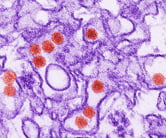

“The US Centers for Disease Control and Prevention … has confirmed that the Zika virus causes severe birth defects,” BBC News reports.
The Centers for Disease Control and Prevention (CDC) has concluded that “a causal relationship exists between prenatal Zika virus infection and microcephaly”, where babies are born with unusually small heads and brains.
The media coverage explains that despite strong suspicions, scientists had been cautious about stating that the mosquito-borne Zika viruswas a cause of microcephaly.
Contents
Possible spread into the US
A recent study published in the medical journal PLOS Current Outbreaks warned the mosquitoes that cause Zika – aedes aegypti – may well spread in southern parts of Texas, Florida and Louisiana in the summer months.
If you’re planning to travel to these parts of the US in the summer, the same travel advice for pregnant women travelling to South America may well apply.
The Public Health England website contains useful travel advice for pregnant women.
What is the basis for these reports?
Experts from the CDC have published a summary of the evidence into the link between the Zika virus and brain malformations, including microcephaly.
They weighed the evidence against two different sets of criteria used to work out whether something that happened in pregnancy, such as taking a drug or getting an infection, was a cause of birth defects.
The summary, published on an open-access basis in the peer-reviewed New England Journal of Medicine, concluded that, “A causal relationship exists between prenatal Zika virus infection and microcephaly and other serious brain anomalies.”
The authors of the summary, who all work for the CDC, then issued a statement in which they said: “It is now clear that the virus causes microcephaly.”
What are Zika virus and microcephaly?
Zika virus is carried by mosquitoes and can also be passed on through sexual contact.
In most people, it causes a mild illness with a raised temperature, rash, joint pain or conjunctivitis, although many people have no symptoms at all.
However, doctors noted an increase in cases of microcephaly, a rare birth defect where the brain does not grow as it should, about nine months after the virus was first identified in Brazil in 2015.
Microcephaly happens when brain development is affected during pregnancy. The brain ceases to grow at the rate it should, and the skull also stops growing properly.
This means the baby’s head is much smaller than it should be and the brain is not properly developed. The child is likely to have serious intellectual difficulties as a result.
Why do scientists think Zika virus causes microcephaly?
The scientists looked at five main questions:
1. Were women infected with Zika virus at a stage in their pregnancy where it could have caused microcephaly?
Yes. Studies showed this was the case, either by the timing of symptoms or by the timing of when the women travelled to areas where Zika virus was common.
2. Are there at least two studies of groups of women that show an association between those who had the virus and those who had babies with microcephaly?
Although some studies exist, the authors said they are too small to rely on completely. The researchers judged this question to only be partially answered.
3. Is the birth defect distinctive and clearly identifiable?
Yes. The researchers said the characteristics of babies affected by microcephaly in this outbreak were very clear and consistent with the stage of development at which the infections had occurred.
4. Is this a rare birth defect, and is Zika virus infection also rare?
Yes. This means the chance of both happening to one person by unlucky coincidence is very low. The birth defect is rare. Although many women were infected with Zika virus during the Brazil outbreak, women infected who travelled to Brazil from unaffected areas also went on to have babies with microcephaly. But for these women, Zika infection was rare.
5. Does the association make biological sense?
Yes. Crucially, scientists have now identified Zika virus in the brains of babies with microcephaly, and have shown in the laboratory that Zika virus infects and kills or slows growth of nerve cells. This provides “strong biologic plausibility”, the researchers say.
Conclusion
The scientists say that, on balance, “we suggest that sufficient evidence has accumulated” to say that Zika can cause microcephaly.
They add that researchers, “have been unable to identify alternative hypotheses” for recent increases in microcephaly in Brazil, French Polynesia and Colombia.
How does Zika and microcephaly affect you?
Public health advice about Zika virus has not changed. At present, Zika virus is thought to be transmitted by mosquitoes in the Caribbean, Central and South America, the Pacific Islands, Vietnam, the Philippines and Cape Verde. See an updated list here.
The Royal College of Obstetricians and Gynaecologists (RCOG) recommends that pregnant women should continue to avoid travelling to areas where Zika is actively spreading.
[Source:- NHS]




